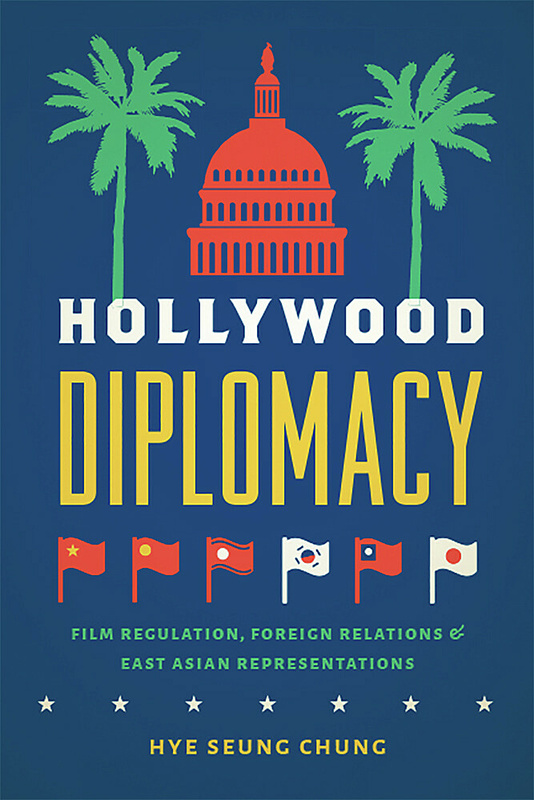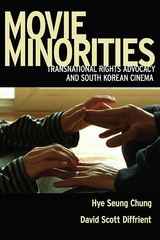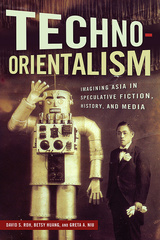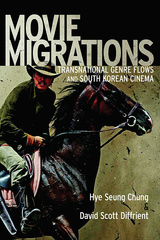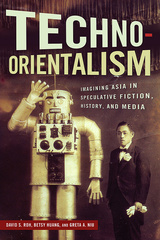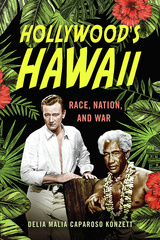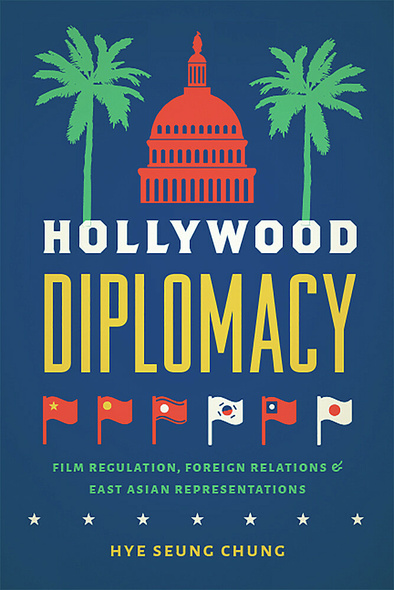
254 pages, 6 x 9
25 B-W photographs
Paperback
Release Date:28 Feb 2020
ISBN:9781978801554
Hardcover
Release Date:28 Feb 2020
ISBN:9781978801561
Hollywood Diplomacy
Film Regulation, Foreign Relations, and East Asian Representations
Rutgers University Press
Hollywood Diplomacy contends that, rather than simply reflect the West’s cultural fantasies of an imagined “Orient,” images of Chinese, Japanese, and Korean ethnicities have long been contested sites where the commercial interests of Hollywood studios and the political mandates of U.S. foreign policy collide, compete against one another, and often become compromised in the process. While tracing both Hollywood’s internal foreign relations protocols—from the “Open Door” policy of the silent era to the “National Feelings” provision of the Production Code—and external regulatory interventions by the Chinese government, the U.S. State Department, the Office of War Information, and the Department of Defense, Hye Seung Chung reevaluates such American classics as Shanghai Express and The Great Dictator and applies historical insights to the controversies surrounding contemporary productions including Die Another Day and The Interview. This richly detailed book redefines the concept of “creative freedom” in the context of commerce: shifting focus away from the artistic entitlement to offend foreign audiences toward the opportunity to build new, better relationships with partners around the world through diplomatic representations of race, ethnicity, and nationality.
Deeply rooted in sound documentation and rigorous archival study but also imaginative and subtle in the interpretive work it accomplishes, Hollywood Diplomacy offers a fresh and vital account of the censorship and regulation that surrounds Asian and Asian American representation in film.
The first comprehensive study of Hollywood’s regulation of East Asian representation. A rigorously-researched and important illumination of the impact of politics, protest, and profit on Hollywood’s representation of race.
The book provides a new and fresh understanding of how policies, censorship, and the propaganda machine can influence screenwriters, directors, and production companies. A deft combination of history and textual analysis, Hollywood Diplomacy provides insight into how Hollywood has often wrongly represented East Asian people and then attempted to save face and money by editing out those problematic representations. Essential.
Hollywood Diplomacy provides great contribution to scholarship not simply on Asian representation on film, but toward providing a much-needed book-length contribution toward better understanding the tensions between foreign censorship boards as well as the progression of Hollywood’s foreign policy at large.
Hye Seung Chung is an associate professor of film and media studies at Colorado State University in Fort Collins, Colorado. She is the author of Hollywood Asian: Philip Ahn and the Politics of Cross-Ethnic Performance and Kim Ki-duk, as well as the co-author of Movie Migrations: Transnational Genre Flows and South Korean Cinema.
Introduction
Part I: Diplomatic Representations in Classical Hollywood
1. Censorship as Cultural Resistance: The Chinese Government's "Uplift" of National Images in 1930s Hollywood
2. Justified Patricide and (Im)Properly Directed Hatred: Regulating the Representations of Chinese and Japanese in Doolittle Raid Films
3. Beyond Propaganda Model: The Pentagon as a Technical Advisor for Brainwashing Films of the Cold War Era
Part II: The War on Terror, Contemporary Hollywood, and Its Global Discontents
4. From Die Another Day to "Another Day": The Anti-007 Movement, Pan-Asian Nationalism, and Protests as Censorship
5. The Interview as a Twenty-First-Century Great Dictator? Rethinking Film Regulation and Foreign Relations through the Sony Crisis
Conclusion: Chinese Censors Return to Hollywood
Appendix
Acknowledgments
Notes
Index
Part I: Diplomatic Representations in Classical Hollywood
1. Censorship as Cultural Resistance: The Chinese Government's "Uplift" of National Images in 1930s Hollywood
2. Justified Patricide and (Im)Properly Directed Hatred: Regulating the Representations of Chinese and Japanese in Doolittle Raid Films
3. Beyond Propaganda Model: The Pentagon as a Technical Advisor for Brainwashing Films of the Cold War Era
Part II: The War on Terror, Contemporary Hollywood, and Its Global Discontents
4. From Die Another Day to "Another Day": The Anti-007 Movement, Pan-Asian Nationalism, and Protests as Censorship
5. The Interview as a Twenty-First-Century Great Dictator? Rethinking Film Regulation and Foreign Relations through the Sony Crisis
Conclusion: Chinese Censors Return to Hollywood
Appendix
Acknowledgments
Notes
Index

